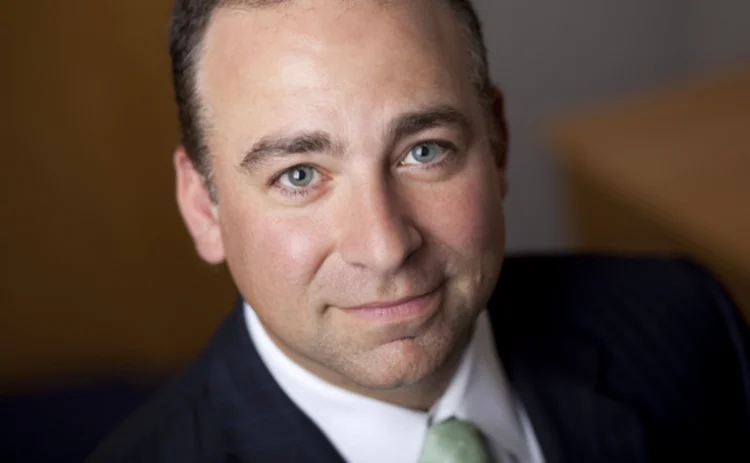SIFMA 2011: When will electronic trading come to the fixed income market?

At Sifma 2011, BST sat down with Eric Goldberg and Ary Khatchikian of Portware to discuss when the fixed-income market will become automated and how long it will take to reach a critical mass.
How automated is the fixed-income market currently?
Goldberg: We have some fixed-income ECNs, but they haven't yet standardized terminology or security classification. You can do it easily enough with government bonds, but there are a million different bonds out there. Electronic trading of bonds has not been easy. You have the Tradeweb types—there are a few out there—who are starting this, but the dealers don't really want to be spitting out feeds like they do in foreign exchange (FX).
Why is this starting to become an issue?
Goldberg: Everybody is looking for those analytics for transaction-cost analysis (TCA)—there's no way to calculate those. There's no way to do analytics if you don't have electronic trading because you need to benchmark and get a snapshot of all those different points.
Khatchikian: And you need your own data rather than, essentially, farming it out to someone else and paying all these additional fees and having people collect that and present it to you. You want to do that with your data in as close to real-time as possible.
Why is Portware interested in this becoming more of a reality?
Goldberg: We're dying for this to start happening because when we built our FX product we specifically designed it from an architectural perspective to immediately move over to fixed income. We're ready to support it in literally no time; it's just a matter of getting the dealers willing to start doing it.
How far away are we?
Goldberg: It's been bubbling for a while, but clients are going to have to start pushing for it because they are going to have to start documenting their fixed-income trades and have that audit trail, just like we're all trying to do with FX trades.
Will this change happen this year, or are we looking more into the future?
Goldberg: I think we'll start seeing it in 2012, but it'll really start to happen in 2013. Nobody has resources right now to internally develop it, and everyone has their IT staff working on all the Dodd–Frank stuff, so nobody is going to put resources into this right now. It's going to be a large bank that doesn't have a big business that has nothing to lose that will kick it all off. It's going to be like Credit Suisse was in equities with Advanced Execution Services (AES); it's going to catch on so quickly that everyone is going to start jumping on.
Only users who have a paid subscription or are part of a corporate subscription are able to print or copy content.
To access these options, along with all other subscription benefits, please contact info@waterstechnology.com or view our subscription options here: http://subscriptions.waterstechnology.com/subscribe
You are currently unable to print this content. Please contact info@waterstechnology.com to find out more.
You are currently unable to copy this content. Please contact info@waterstechnology.com to find out more.
Copyright Infopro Digital Limited. All rights reserved.
You may share this content using our article tools. Printing this content is for the sole use of the Authorised User (named subscriber), as outlined in our terms and conditions - https://www.infopro-insight.com/terms-conditions/insight-subscriptions/
If you would like to purchase additional rights please email info@waterstechnology.com
Copyright Infopro Digital Limited. All rights reserved.
You may share this content using our article tools. Copying this content is for the sole use of the Authorised User (named subscriber), as outlined in our terms and conditions - https://www.infopro-insight.com/terms-conditions/insight-subscriptions/
If you would like to purchase additional rights please email info@waterstechnology.com
More on Trading Tech
Systematic tools gain favor in fixed income
Automation is enabling systematic strategies in fixed income that were previously reserved for equities trading. The tech gap between the two may be closing, but differences remain.
Waters Wrap: Examining the changing EMS landscape
After LSEG’s decision to sunset Redi, Anthony examines what might lie ahead for the EMS space.
This Week: Clear Street, AXA/AWS, TD Bank/Google Cloud and more
A summary of the latest financial technology news.
LSEG to sunset Redi EMS in favor of Tora
Sources say competitors will look to seize on the decision to win over Redi’s sizeable US client base.
WatersTechnology latest edition
Check out our latest edition, plus more than 10 years of our best content.
Getting aggressive: Overbond uses AI to assess dealer axes
The fixed-income analytics specialist has developed a new tool to help buy-side firms decide if they’re getting a good price from their dealers.
TS Imagine integrates LTX’s pre-trade analytics tool
Users of the fixed-income EMS will now have access to LTX’s Liquidity Cloud tool, which provides a pre-trade score for the likelihood of trading success.
Most read
- Sell-Side Technology Awards 2024: All the winners
- Sell-Side Technology Awards 2024: Best sell-side front-office platform—Bloomberg
- Systematic tools gain favor in fixed income








